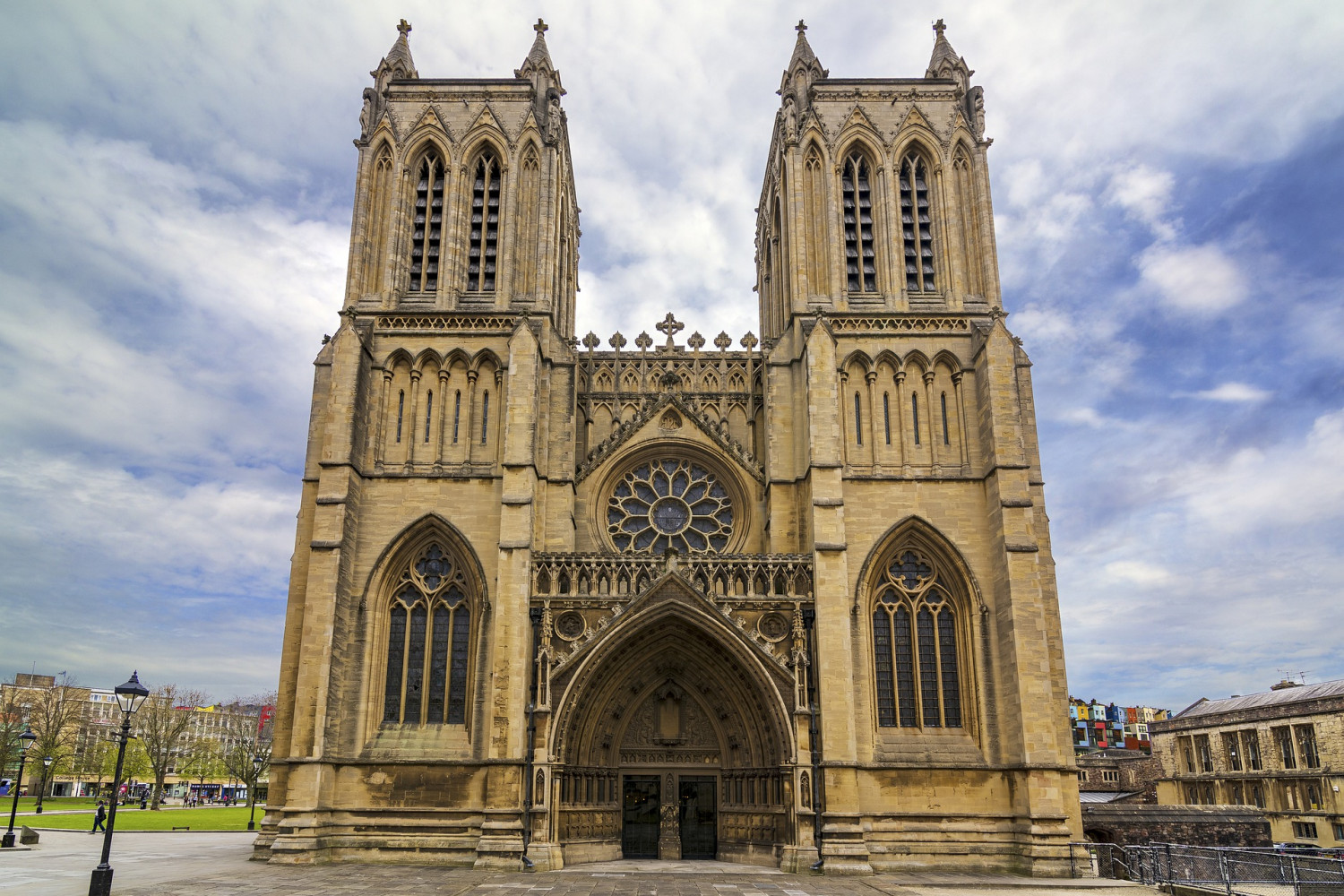
Following a meeting with Gloria Daniel, of Transatlantic Trafficked Enslaved African Corrective Historical (TTEACH ) plaques, the Bishop of Bristol and the Dean of Bristol have committed to exploring ways of commemorating the lives of those enslaved by slave owner, Alderman and Mayor of Bristol, Thomas Daniel in those buildings where there are memorials to him.
Gloria Daniel is the great-great granddaughter of John Isaac Daniel, who was one of 4,424 people enslaved in 1834 on a plantation owned by Thomas Daniel. Thomas Daniel and his brother John were compensated the equivalent of millions of pounds in today’s money as part of the Slave Compensation Act 1837, for the ‘freedom’ of John Isaac and these enslaved people.
At the meeting, which was also attended by Bishop Joe Aldred, formerly of Churches Together in England, Ms Daniel presented a document highlighting memorials to Thomas Daniel and his family in churches around the country. This includes the rose window in Bristol Cathedral and a memorial in St Mary’s Church, Henbury.
The move to commemorate the lives of those enslaved by Thomas Daniel forms part of a wider commitment by the Diocese of Bristol to address concerns over memorials with links to slavery, and other ‘contested heritage’, as it seeks to honour those whose stories have previously been untold, and to give voice to communities who have suffered injustice.
Following the meeting, the Bishop of Bristol, the Rt Rev’d Vivienne Faull, said:
“It was important to meet with Gloria Daniel to learn something of the story of the Daniel family and its connections to the Church of England, even though it points to a shameful past.
Following the killing of George Floyd in May 2020, I made a series of public commitments as Bishop to tackle racism and to acknowledge and repent of the Church’s past involvement in and benefit from the slave trade. Working with Ms Daniel is a direct outworking of the commitments I made and I look forward to seeing the fruit of our collaborative work in the months ahead.”
Gloria Daniel said:
“Allowing stained glass tributes to be erected to the honour of men such as Thomas Daniel and his sons and the direct ties to the clergy, within that family, inextricably links the Church of England to these crimes against humanity.
While I have not yet received a commitment to raise this first plaque, I believe it is now on the table and this simple request to finally commemorate our great, great grandfather and 4,424 African Caribbean peoples who were enslaved by Thomas Daniel and his family, cannot in good conscience be denied.”
The Dean of Bristol, the Very Rev’d Dr Mandy Ford, said:
“I was honoured to meet with Gloria and to hear the story of her family and their connection with the many memorials in our Cathedral. I am delighted that we have agreed to work together to explore how the lives of enslaved Africans working on the plantations owned by the family of Thomas Daniel in the 19th Century, and their descendants, can find a place in our cathedral, so that the stories of all God’s children are woven into the fabric of this building.
Bishop Joe Aldred said:
“We may not know all the details of where we are heading but we can come together as fellow human beings loved by God and commit to walking together in our common humanity to strive for a future that honours God by addressing the wrongs of the past, in this case those relating to Thomas Daniel.
That is what we have agreed to do and my prayer is that new possibilities and new vistas will soon open up for the Church of England, Daniel descendants like Gloria, and the people of Bristol.”
The diocese recently welcomed the national guidance Contested Heritage in Cathedrals and Churches, which presents a range of options and considerations for churches and cathedrals, together with suggested models for local consultation and discussion.
Experiences that helped inform the guidance include consideration given in Bristol Cathedral to dedications to Edward Colston. The Cathedral obtained permission to remove elements of a stained glass window recording a dedication to Colston, which have been retained for future educational or display use. Prominent references were also removed from the windows of St Mary Redcliffe Church.
The work on memorials and ‘contested heritage’ forms one part of an important journey for the Diocese of Bristol in its discussions and work around the trans-Atlantic slave trade, racism, identity and justice. The Bishop of Bristol, the Rt Rev’d Vivienne Faull, has set out her commitments that will form the basis of the diocese’s work and focus in this area.
Notes:
- Further information on Transatlantic Trafficked Enslaved African Corrective Historical ( TTEACH ) plaques: https://tteachplaques.org/
- Guidance on Contested Heritage in Cathedrals and Churches: https://www.churchofengland.org/resources/churchcare/advice-and-guidance-church-buildings/contested-heritage